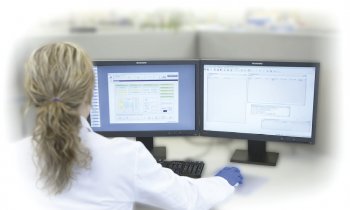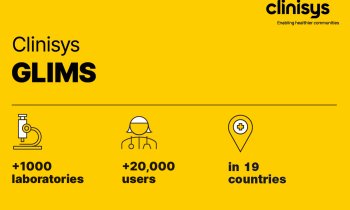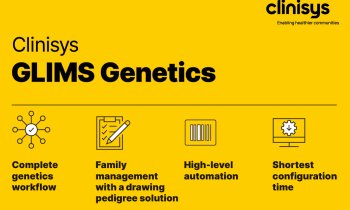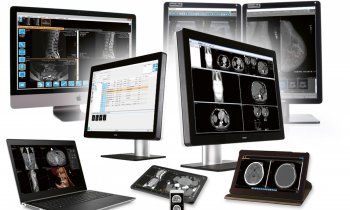Out-of-hospital digital documentation
Accidents, emergencies and disasters
Vital patient-related data must be documented by emergency medical services, disaster relief units and emergency physicians, in out-of-hospital settings, and currently most of this is done entered manually on paper.
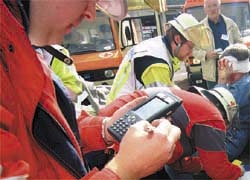
Apart from being time consuming, this practice also makes it difficult to review certain protocol details, pass on data to the admitting hospitals or to extract information for research.
Lately, numerous soft and hardware solutions have been introduced to digitise pre-hospital patient data. These systems range from scanning in protocols with handwriting-recognition, to digital pens that analyse the writing process and translate viewed movements into digital letters, and finally, mobile devices such as PDAs and tablet-PCs.
The success of any solution for mobile data digitisation is mainly determined by software - to process, transfer, store and display the information. Numerous programmes for all kinds of medical care needs are available, but given their enormous variety, the biggest problem is that most hospitals and healthcare providers use different systems, and in most cases even several different ones in the same institution. This makes it difficult to exchange data internally or transfer it to another institution.
To overcome the problem Orion Health has developed an application for mobile devices that allows digital entering of data in to emergency protocols and transferring this data into any existing hospital software. This is possible due to a software integration engine that translates incoming data into the format required by a hospital’s current applications. Furthermore, the patient data can be stored on a central database to be accessible for certified users, using a web-based integration application named Concerto. Later, all stored data can be analysed, statistics can be extracted and reviewing data is easily possible.
To ease data entry as much as possible, the emergency protocol application on the mobile device follows the logical structure of the paper forms already used in a certain area. Due to its modular configuration it could be easily adjusted to the needs of a variety of Emergency Medical Service providers. To enhance recognition by hospital personnel, the print out could also match the style of the paper version. To maximise efficiency, most data is entered by checking boxes or is automatically received from diagnostic appliances via Bluetooth.
Since this new application runs on mobile hardware solutions, such as Tablet-PCs or PDAs, apart from manual data entry, additional information can be added to the protocol. Digital cameras can capture images and videos of the patient, captured by digital cameras at the emergency site, can be added to the electronic version of the protocol. When under time pressure it can be beneficial to simply audio record medical findings instead of typing them at the site.
After completing the entire emergency protocol, a print out could be created on a mobile printer built in to the ambulance. Then the digital file can be sent either via cell phone network (GPRS) or uploaded directly into the hospital system using Wireless-LAN.
The most important reason to implement modern technology in emergency situations is to improve or ease working procedures. The digitisation of patient data in the out-of-hospital setting can only be an asset if easy to use and of a familiar pattern. Therefore any application for use by Emergency Medical Services must be adapted to the needs of the paramedical and medical personnel, which was carefully done when this new mobile emergency protocol application was designed.
The Von Bergh Global Medical Consulting group:
Martin von Bergh MD PhD MBA, founder and CEO of Global Medical Consulting, is a practicing medical doctor, emergency physician and disaster manager, with an MBA in International Hospital Management.
His organisation advises governmental organisations, hospitals, private practices, and other healthcare providers and industries on emergency and disaster management, and assists in the improvement of emergency medical services as well as disaster preparedness and response.
The services
• Development of innovative and economically efficient concepts for pre-hospital emergency care
• Evaluation and improvement of current Emergency Medical Services
• Consulting for mass event preparedness
• Redesign of international concepts for disaster scenario management
• Strategic planning and implementation of new emergency/disaster relief units and facilities
• Planning and execution of disaster drills with evaluation and improvement recommendation
Details: www.GlobalMedicalConsulting.net
Phone: +49 (0) 6432 50 72 10. Email: info@GlobalMedicalConsulting.net
08.03.2007







